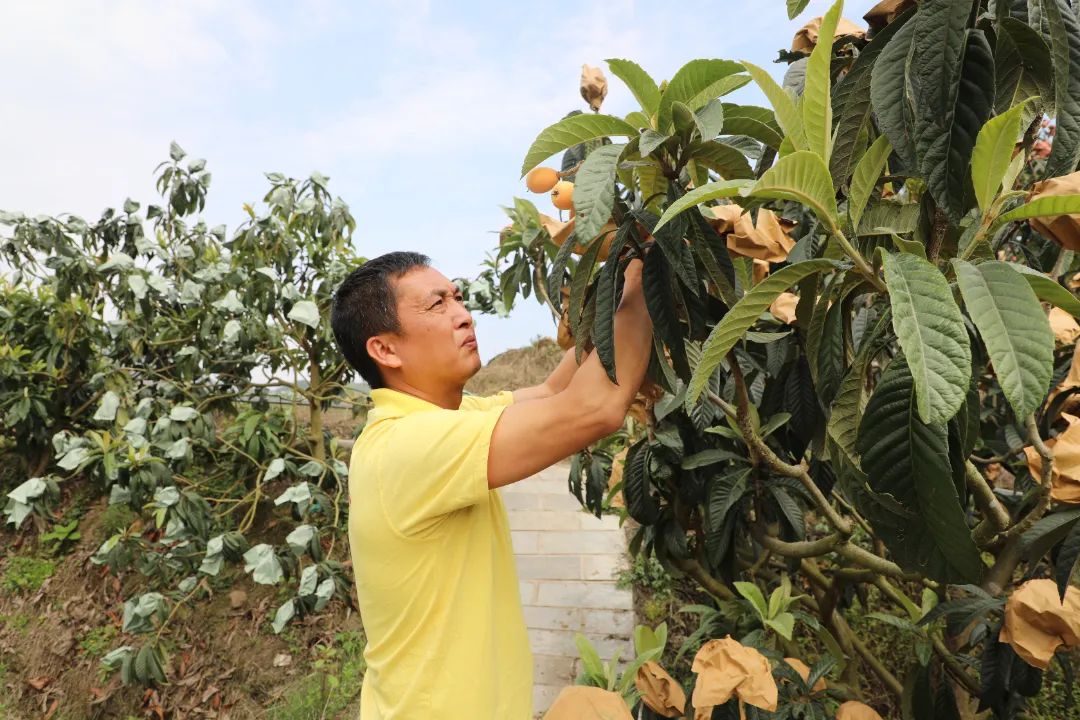Loquat industry promotes rural development in Kaiyang

A local inspects the growth of loquats in Miaozhai village, Kaiyang county, Guiyang. [Photo/WeChat account of kaiyang county]
Since 2003, Kaiyang county in Guiyang, capital of Southwest China's Guizhou province, has been promoting the development of fruit tree cultivation led by the loquat industry.
Benefiting from the location, advantageous climate and soil rich in rich in selenium, loquats from Kaiyang are famous for being juicy and rich in various nutrients. In September 2014, the Kaiyang loquat was approved as a national geographical protection mark product.
The good reputation and high quality of Kaiyang loquats attract buyers from Zhejiang, Fujian, Yunnan and Chongqing and bring in ten times more income than planting traditional crops, which has greatly benefited local villages.
Miaozhai village has been working to grow loquats for over 20 years, with its cultivation area growing from 800 mu (53.33 hectares) to 5,000 mu. This year's output is expected to exceed 1.9 million kilograms, and the output value is expected to exceed 20 million yuan ($2.79 million).
So far, the county has planted over 65,000 mu of loquats, making it the largest loquat planting base in the province. With an annual output of 30,000 metric tons and an output value of 300 million yuan, the base has benefited more than 42,000 farmer households.
To further the development of the loquat industry, efforts have also been made by the county to develop new-type rural tourism and hold loquat cultural tourism festivals.
Moving forward, Kaiyang will focus on deep processing and broaden sales platforms to boost industrial development.
Presented by China Daily.
黔ICP备05001922号-3
